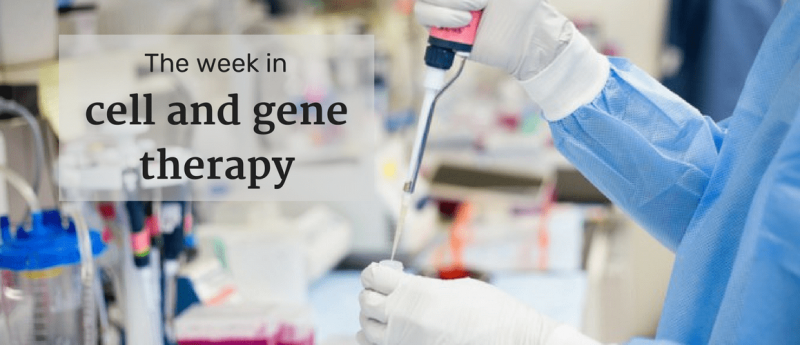Cell therapy weekly: £1.1million funding for new research into patient experience of cell therapy

This week in cell therapy: MaSTherCell doubles cell therapy capacity and blocking GM-CSF protein reduces CAR-T toxicity.
The news highlights:
£1.1million funding for new research into patient experience of cell therapy
MaSTherCell doubles cell therapy capacity
Blocking GM-CSF protein reduces CAR-T toxicity
£1.1million funding for new research into patient experience of cell therapy
University of Birmingham (UK) researchers will lead a ground-breaking study into patients’ experience of cell and gene therapies. The PROmics study will be led by Melanie Calvert, Professor of Outcomes Methodology and Director of the Centre for Patient Reported Outcomes Research (CPROR) at the University of Birmingham, and will combine patient data on symptoms and quality of life with clinical outcome and manufacturing data.
Professor Melanie Calvert explained: “The project will develop an electronic capture system to assess quality of life and symptoms, both at the point of receiving therapy and on a longer-term basis following discharge from hospital. Patients involved in the study will input into the design and build of this system, to ensure it is user-friendly and meets their needs.
“The data generated by patients will then be used to assess the effectiveness of treatments, support patient care and provide a crucial evidence base for regulators and policy makers. Ultimately, the PROmics study will help establish the safe and efficient delivery of new Advanced Therapy Medicinal Products (ATMP) to patients and also maintain the UK’s leading role globally for developing new therapies.”
MaSTherCell doubles cell therapy capacity
MaSTherCell S.A. (Belgium) has announced a new production wing, providing five late stage and commercial-ready clean rooms for contract development and manufacturing. The new wing will also include two development laboratories, one quality control laboratory and additional warehouse capabilities.
“Providing MaSTherCell’s quality of service in late stage and commercial manufacturing was one of our priority during the construction of the new infrastructure”, commented Denis Bedoret, Managing Director of MaSTherCell SA. “The cell therapy industry and specifically our partners are eager to have access to reliable and additional state-of-the-art facilities for their commercial projection.
“Our objective is to help them access the market faster with tailor made capabilities. Today, we are pleased to offer these key assets to our partners and more widely to any cell therapy company facing a lack of production or development capacities.”
Read more (opens PDF)
Blocking GM-CSF protein reduces CAR-T toxicity
Mayo Clinic (MN, USA) researchers have developed gene-edited CAR-T therapies with lower toxicities. When the granulocyte macrophage colony-stimulating factor (GM-CSF) was inhibited using lenzilumab, a clinical-grade antibody, neuro-inflammation was reduced and cytokine release syndrome was prevented. The team also produced gene-edited CAR-T cells which were GM-CSF-deficient. They will now test the GM-CSF-inhibitor in a phase II trial.
“When we blocked the GM-CSF protein, we found that we could reduce toxicities in preclinical models, explained Rosalie Sterner, a student working in the T Cell Engineering Laboratory of Saad Kenderian, a Mayo Clinic hematologist, and first author. “We also were able to demonstrate that CAR-T cells worked better after the GM-CSF protein was blocked.”
For more weekly cell therapy news, read previous editions of the cell therapy weekly.